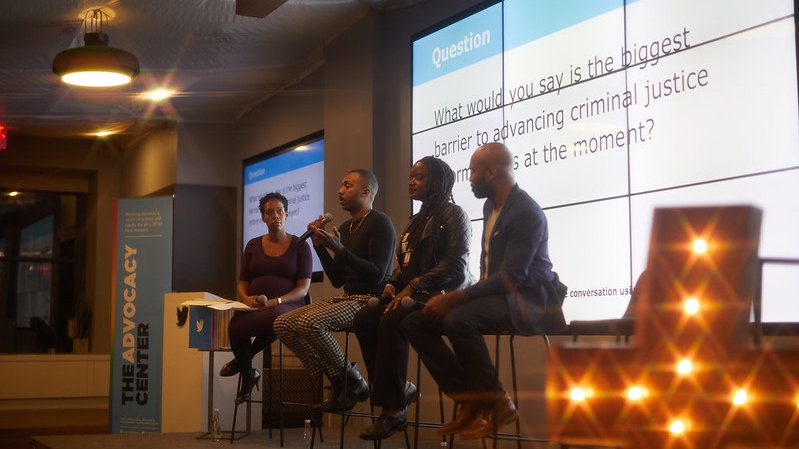If you’re interested in sharing your opinion on any cultural, political or personal topic, create an account here and check out our how-to post to learn more.
____
It’s no secret that America is experiencing a surge of hate crimes, which puts the lives of marginalized groups, including LGBTQ people, at risk. Advocates are rightfully demanding action from lawmakers, and the pressure is paying off. From state senators to presidential candidates, there is a growing chorus of commitments to step up. And traditionally, “stepping up” has meant implementing stronger criminal penalties for those who commit hate crimes.
But a stronger approach doesn’t always guarantee the best approach, and it’s becoming increasingly clear that our traditional response to hate crimes requires a more thoughtful examination. It’s time for all who are fighting to protect vulnerable groups to amplify the call for better hate crimes data across all states — and not just in terms of how crimes are committed and what sentences are handed down, but also who is penalized.
As LGBTQ advocates, our goal is to stop the violence committed against queer people. But what about the violence that we and other marginalized communities face from the criminal justice system? Could hate crimes penalties be systematically contributing to the oppression of the very people we fight to protect?
There isn’t yet a clear answer to this question, largely due to one of the many fundamental flaws in how law enforcement and the legal system investigates and adjudicates crimes: There’s an overwhelming lack of transparency. The U.S. does a shockingly sloppy job of gathering hate crimes statistics in general, especially at the local level. Just this past summer, the Senate introduced a bill to address this failing at the federal level, and Oregon passed a law requiring better documentation and reporting of hate crimes within the state, which includes requiring district attorneys to report on the charges and sentences issued in hate crimes cases.
To make sure our efforts to seek recourse for hate-fueled violence don’t end up further marginalizing ourselves and other communities, we must better understand who is being impacted by the criminal justice system for hate crimes.
Hate crime penalties have escaped thorough scrutiny for too long, not just because of the lack of data surrounding them, but also because of their very nature. They are specifically intended to defend communities who are at risk from acts of discrimination, harassment and violence. But the reality is that the very same groups who are often the targets of hate crimes, particularly LGBTQ people and people of color, are proven to be disproportionately targeted by and mistreated within the criminal justice system.
LGBTQ advocates have a particularly big role to play in pushing for more transparency around how hate crimes laws are enforced. In addition to our personal stake in the conversation around hate crimes (anti-LGBTQ crimes have increased over the past three years, with a spike in homicides just this summer), it bears reminding that sexual orientation and gender identity are just a component of one’s identity, and that we serve many people who live at the intersection of multiple marginalized identities. For example, I, as a Black gay man, represent a demographic that is the most egregiously criminalized in the country. That means we can’t fully rely on a tool of the criminal justice system as a solution to hate violence without exploring whether it may perpetuate a different kind of violence that directly affects our communities.
An effective way to solve the murkiness around the enforcement of hate crime penalties is to take a page from Oregon’s book, and then carry their work one step further by insisting that states collect and report more detailed, accurate demographic data about who is involved in hate crimes. A model for how to achieve this is the Hate Crimes Analysis and Review Act, which is under consideration by lawmakers in New York State (the bill passed the State Assembly during the last legislative session, and has yet to pass the Senate). It would require the state to collect and report data on the sexual orientation, gender identity and racial or ethnic identity of alleged perpetrators and victims of hate crimes.
Not only would gathering this type of information bring us closer to getting the full picture of how hate crime penalties impact those who are most vulnerable, it is also more likely to spur reforms if necessary. If the data were to reveal what many with lived experience believe to be true — that hate crimes penalties are weaponized against the very people the laws exist to protect — lawmakers could not ignore these findings. In short, it would make it easier for them to implement policies that would improve the current approach to hate crimes legislation.
It is terrifying to recognize that we are living through a time when people are increasingly emboldened to attack people of color, LGBTQ people and many others simply because of who we are. We are right to insist that our government take action to protect us. Yet as we do so, we cannot turn a blind eye to the flaws inherent in the system we are relying on to keep us safe. The more deeply we understand the impact of the tactics we currently use to combat hate crimes, the better we can ensure the safety and wellbeing of all vulnerable people.

